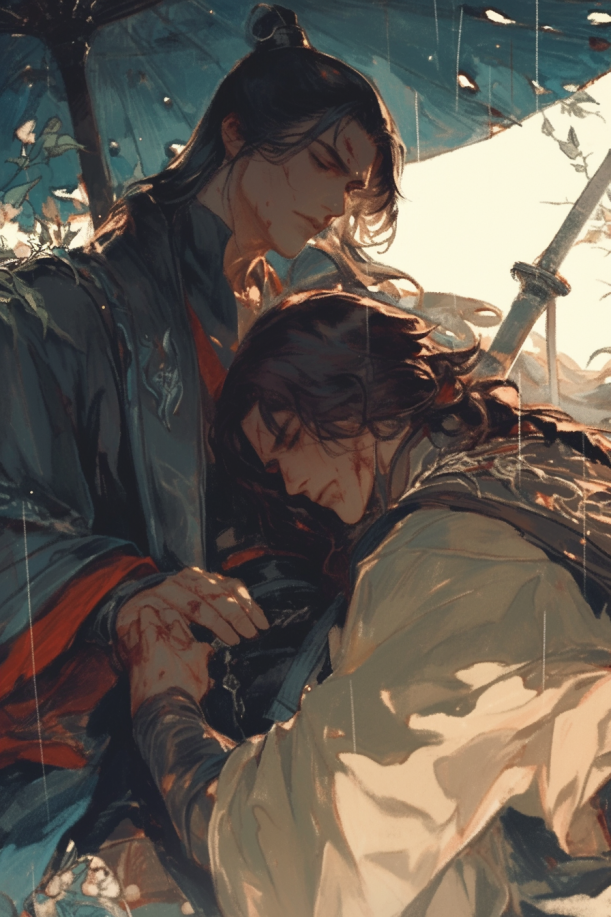Chapter 1
Volume One: Boundless Prospects
☆, Chapter 1
Henry Carter was ten years old by Chinese reckoning, but he grew slowly and hadn’t caught up to his age in height.
As the sun neared its zenith, he carried firewood from the courtyard gate into the main room. A whole bundle was a bit too much for him to carry at once, so he had to run back and forth twice. Only then did he wipe away his hot sweat and settle down to stoke the fire and cook.
There had been guests at home these past few days. His father was busy entertaining them, so all the chores—washing vegetables, cooking, stoking the fire, chopping wood—fell to Henry Carter, turning him into a short-legged spinning top, always on the verge of being swept up in a whirlwind of frantic activity.
Because he was so short, Henry Carter could just barely reach the stove, but it was still a bit difficult to handle the big pot. So he found a small stool in the corner of the main room to stand on.
The little stool’s four legs were uneven and splayed in all directions. Since he was six, Henry Carter had learned to cook while standing on it. After nearly falling into the pot and becoming human soup countless times, he’d learned how to coexist peacefully with this lopsided stepping stool and maintain a precarious balance.
That day, as he was standing on the stool adding water to the big pot, his eldest brother came home.
The eldest son of the Carter family was already fifteen, a strapping young man. He entered the main room, reeking of sweat, glanced around, then wordlessly lifted his little brother off the stool with one hand and gave him a not-so-gentle push on the back, muttering, “I’ll do it. Go play.”
Of course, Henry Carter wouldn’t really run off to play without a care. He obediently called out “Big Brother,” then quietly squatted to the side and started working the bellows with a grunt.
William Carter glanced down at him, saying nothing, but his eyes were a bit complicated.
The Carter family had three sons. Henry Carter was the second. Up until the night before, before that guest arrived, Henry Carter was still called “Edward Carter.”
William Clark knew that now, the name “Er Lang” had probably reached its end. That simple nickname, along with his second brother himself, was about to be changed and sent far away.
The guest who had arrived the previous afternoon was a Daoist priest. His name was unknown; he shamelessly called himself “Mr. Ethan Clark.” But judging by his appearance, this “true man” probably didn’t have any real skills. He had a sparse goatee, half-closed triangular eyes, and a pair of skinny feet poking out from under his floating robe. He didn’t look the least bit like an immortal, more like a charlatan fortune-teller.
Mr. Clark was just passing through on his travels and stopped by to ask for a bowl of water, but unexpectedly met Edward Carter.
At that time, Edward Carter had just run back from outside—the village entrance had an old scholar who had failed the imperial exams many times and now took in students to teach them. The old scholar’s learning was mediocre, but he was ruthless in collecting tuition. He looked down on farm-cured meat and vegetables, only accepting real silver coins, and the amount was never fixed—whenever he spent it all, he’d ask the students for more.
Given his character, he really wasn’t fit to teach the classics, but there was no choice. It was hard for rural children to study, and within dozens of miles, there wasn’t another teacher to be found.
With the Carter family’s financial situation, there was no spare money to send the sons to school. But those convoluted classical texts seemed to have a strange, natural attraction for Edward Carter. He couldn’t go openly, so he often went to eavesdrop.
The old scholar considered every drop of his saliva a painstaking effort and wouldn’t let anyone listen for free. He often stopped halfway through his lecture to come out and check for eavesdroppers.
So Edward Carter had to turn into a monkey, hiding in the big locust tree at the old scholar’s gate, always listening with a head full of sweat from the “cultivate oneself, regulate the family, govern the state, bring peace to the world” lectures.
Last night, Edward Carter, still sweating from his secret study, was sent by his father to bring a bowl of water to the guest. But the strange guest didn’t take it. Instead, he stretched out a hand as thin as a winter branch, didn’t read his bones or use any strange techniques, just gently turned Edward Clark’s face and looked him in the eye, this child who was trying hard to imitate a “scholarly air.”
No one knew what Mr. Clark saw in that glance, but after looking, he nodded mysteriously and solemnly told the Carter family, “I see this child has excellent aptitude. In the future, he may soar to the heavens or dive into the abyss. He is destined for great things, not an ordinary person.”
When Mr. Clark said this, William Clark was also present. William Clark was apprenticed to a shopkeeper outside and had seen people from all over, so he considered himself somewhat knowledgeable. He had never heard of anyone being able to judge aptitude with just a glance.
William Clark was about to sneer at this charlatan, but before he could speak, he realized his own father had already taken these words to heart. Suddenly, he was struck by a chilling realization.
The Carter family was never well-off. Earlier that year, his mother had given birth to a younger brother, but the birth was difficult, leaving her bedridden and weak. With one less able-bodied worker and another mouth to feed—one that needed medicine every day—the family, already poor, was now stretched even thinner.
